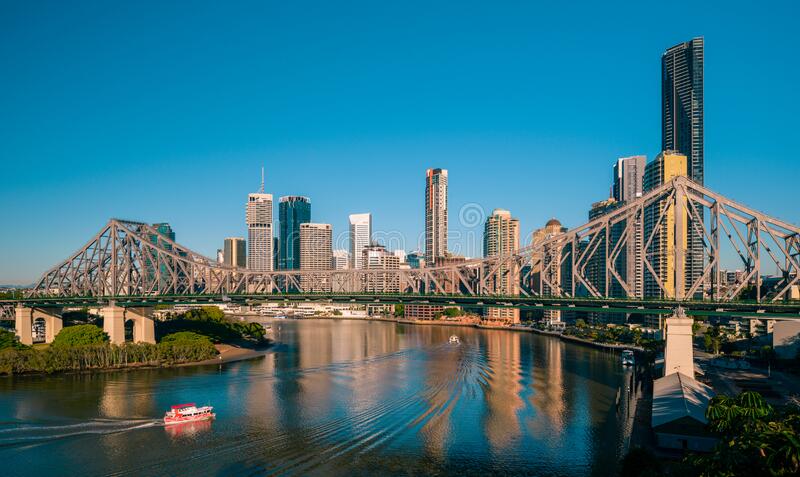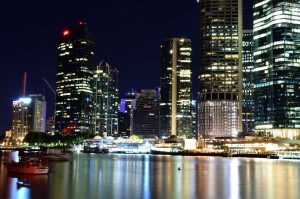Breaking News Today – The Brisbane Bridge


The Brisbane Bridge was built between South Bank and the city in 1969. The city had previously built a wooden bridge. This bridge was eventually destroyed by wood worm and was never fully rebuilt. The first bridge was opened in 1865 but collapsed three years later. Another wooden bridge was constructed in 1894 but was destroyed by the Great Flood of 1893. A third bridge was built in 1897 but was not completed until 1969. This fourth bridge connects the South Bank with the city center.
The new Neville Bonner Bridge will provide a pedestrian connection across the Brisbane River and provide a major public amenity for the city. It will be named after late Senator Neville Bonner AO, the first Indigenous Australian to be elected to the Commonwealth Parliament. It will also increase the city’s water infrastructure and provide greater connectivity throughout the CBD. Despite the long wait, the project is expected to be completed in 2022.
When the City Council of Brisbane announced the building of the bridge in 1861, the design for the structure was not yet finalized. The city then decided to construct an iron lattice-girder bridge. On 22 August 1864, Sir George Bowen laid the foundation stone for the bridge. The bridge was completed less than a year after the first foundation stone was laid. And, as if the bridge isn’t already iconic enough, it is also an architectural marvel.
While the bridge was out of commission for six months, the city has been able to rebuild its infrastructure since then. The bridge was a key element of the Brisbane River’s development, connecting new suburbs with the city. The bridge has become a symbol of the city’s progress, but it also has its challenges. One of the biggest concerns of South Brisbane was the collapse of the bridge. It forced many businesses and people to move to the northside of the city. The southern suburbs deteriorated, while new suburbs prospered.
The Brisbane Bridge was officially opened on 6 July 1940 and originally named the Jubilee Bridge in honour of King George V. A few years later, it was given its current name in gratitude for the city’s developer, John Douglas Story. It also featured a toll booth. The toll booth helped cover the cost of construction. It is also used to raise funds for the city’s public services and programs. Its opening has a rich and colorful history.
The Story Bridge is the second Brisbane River crossing. It connects the Fortitude Valley with Kangaroo Point. The Story Bridge was built before the Sydney Harbour Bridge was completed in 1932. Its design was based on the Jacques Cartier Bridge in Montreal. In addition to its importance, it has also become an icon in the city. Unlike its Sydney counterpart, it is one of the city’s most famous landmarks.
The Story Bridge is one of the most famous and impressive bridges in Brisbane. It opened in 1867 and carried ninety thousand vehicles daily. It was completed in seven years. It is also one of the oldest bridges in the world and is the only bridge to link the city to the rest of the region. The Story Bridge has a pedestrian walkway that connects the two regions. The Story Bridge also carries the famous Brisbane River Ferry.
The Story Bridge is a heritage-listed steel cantilever bridge that connects the southern suburbs to the city’s north. It is the longest steel cantilever bridge in the world and is the only way to reach Kangaroo Point and Fortitude Valley. The Story Bridge opened in 1940 and was tolled until 1947. The story bridge is named after prominent public servant John Douglas Story. The Story Bridge offers incredible views of the city.
The Kurilpa Bridge is another iconic bridge in Brisbane. This pedestrian and bicycle bridge is best known for its LED light displays. It’s solar-powered and changes colour frequently. The Kurilpa Bridge connects the south suburbs with the city’s central business district. The Kurilpa name derives from an Aboriginal word meaning ‘place of water rats.’ You can see this bridge when you visit South Brisbane.
The construction of the Sydney Harbour Bridge began in May 1935. The various components were constructed in a factory in Rocklea. Workmen there worked twenty-four hours a day until the structure was completed. During construction, the southern foundations were 40 metres under ground. Pneumatic caissons were used to dig them and required workers to work in high pressure with extended periods of decompression. It took a little over three years to complete the bridge.

